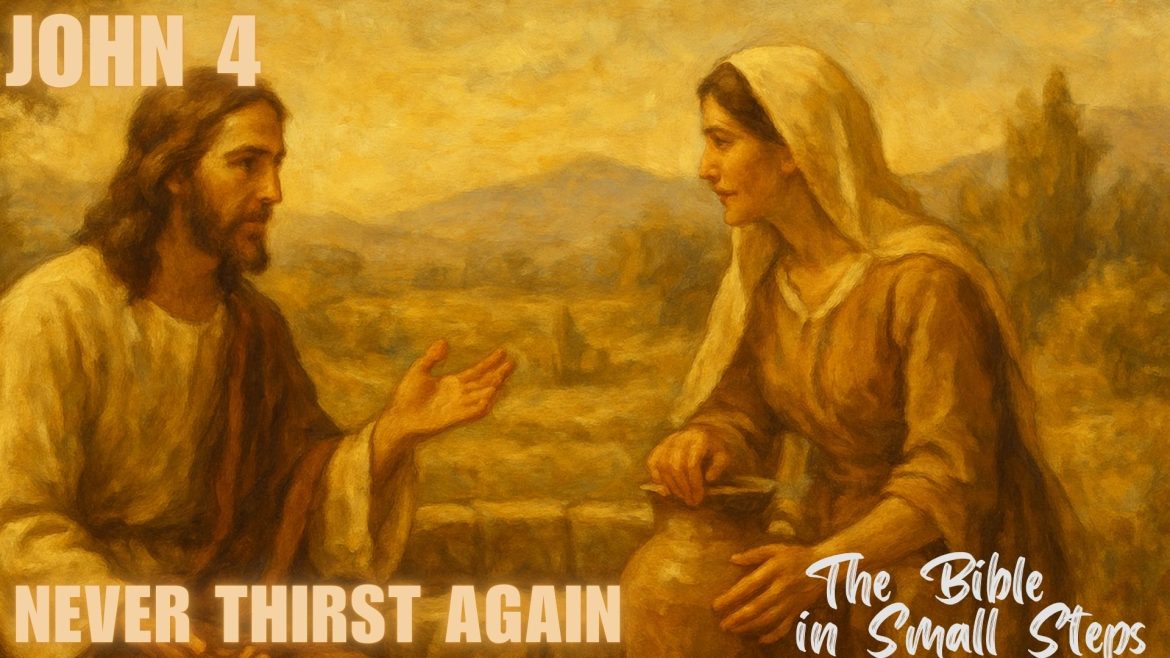Water is essential for life, but what about the soul’s thirst? In John 4, Jesus introduces the concept of “living water” during a transformative encounter with a Samaritan woman. This moment isn’t just a conversation — it’s a profound lesson about identity, worship, and the inclusivity of God’s grace. Through this passage, we learn not only about spiritual nourishment but also about the radical love and acceptance offered by Jesus to those on the margins of society.
The Road Less Traveled: Jesus in Samaria
Jesus’ decision to travel through Samaria breaks cultural norms. Jews traditionally avoided Samaria due to deep-seated ethnic and religious tensions. But Jesus chooses a different route — one that leads to connection and revelation. This decision highlights a key message: the gospel is for everyone, regardless of social or ethnic divisions.
The Meeting at the Well
The well at Sikar (Shechem) is rich with historical significance — it’s a place tied to patriarchs like Abraham, Jacob, and Joseph. When Jesus, weary from travel, stops there, it’s more than a rest. It’s a divine appointment. A Samaritan woman arrives alone in the heat of the day, signaling social exclusion. Jesus breaks multiple social norms by speaking to her: He’s a Jew, a man, and a rabbi. Yet He engages her not just in conversation, but in transformation.
Living Water and True Worship
When Jesus offers “living water,” He’s speaking on a spiritual level. The woman misunderstands initially, thinking practically about avoiding her daily water-fetching routine. But Jesus redirects the conversation to her deeper needs. He knows her past — five husbands and a current partner — yet He offers her dignity and truth, not condemnation.
This interaction leads to a profound theological point: worship isn’t about location (Mount Gezerim or Jerusalem); it’s about the posture of the heart. “True worshipers will worship in spirit and in truth.” Jesus affirms that God is not bound by geography or tradition, but is present wherever hearts seek Him sincerely.
Bold Witness and Harvest Fields
Transformed by the encounter, the woman becomes a bold witness. She runs back to her town, leaving behind her water jar — a symbolic gesture of abandoning her old burdens. Her testimony, raw and unpolished, draws people to Jesus. She doesn’t quote scripture or offer a sermon; she simply shares her experience.
Jesus uses this moment to teach His disciples about spiritual harvest. “The fields are ripe,” He says, pointing to the readiness of hearts to receive the gospel. Evangelism is not about credentials or eloquence. It’s about witnessing — sharing your story of how Jesus met you.
Healing from a Distance
The chapter ends with another miracle: Jesus heals a royal official’s son from afar. This “remote healing” emphasizes the boundless reach of Jesus’ power. The official’s faith grows stronger after seeing the miracle’s timing align perfectly with Jesus’ words. It reinforces a central message: belief often begins with a personal encounter and grows through trust in Jesus’ promises.
Modern Applications: Thirsting for More
In a world filled with distractions and temporary fixes, the idea of “living water” resonates deeply. We chase after achievements, relationships, or comfort to quench our soul’s thirst, yet still feel empty. Jesus invites us to receive something enduring — a peace and purpose that doesn’t run dry.
His approach to the Samaritan woman shows us the importance of crossing boundaries to bring love and truth to others. No one is too far gone, too unworthy, or too different. And like the woman at the well, our stories can become powerful testimonies when we allow God to use them.
Conclusion: Come and See
John 4 teaches us that Jesus meets us where we are — at our wells, in our shame, in our isolation. He offers living water that satisfies the deepest thirst. Our role? To accept it, to worship authentically, and to share our stories. Because when we do, others might just say, “Now we believe — not just because of what you said, but because we have heard Him for ourselves.”

